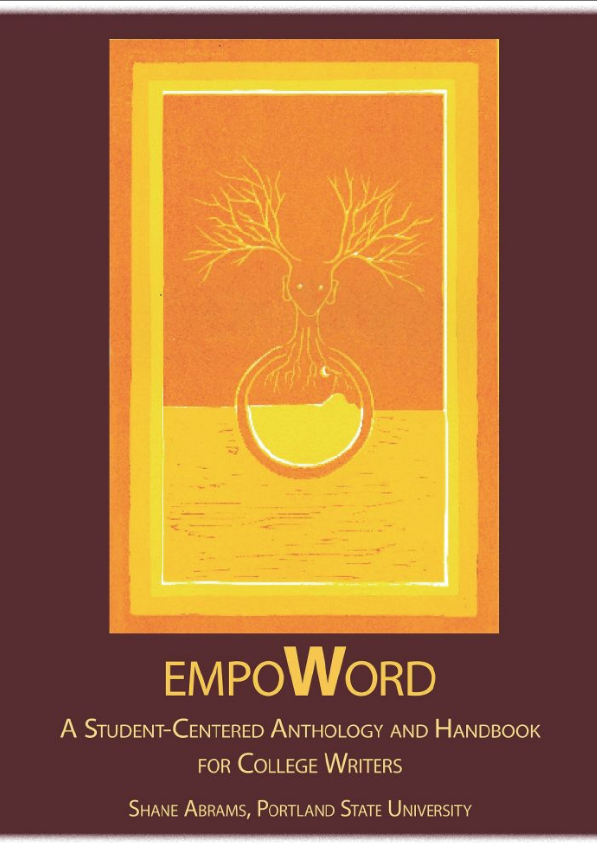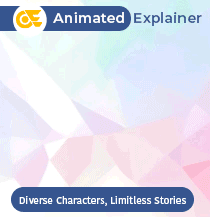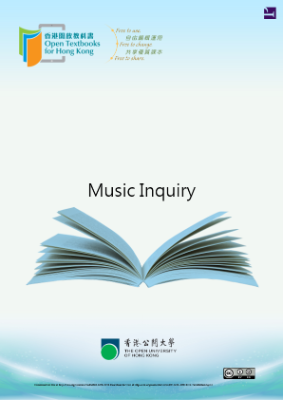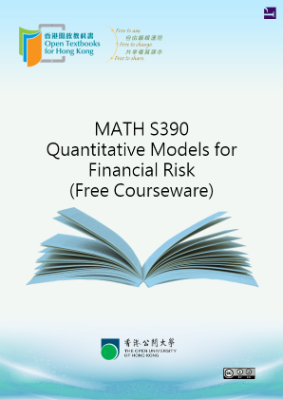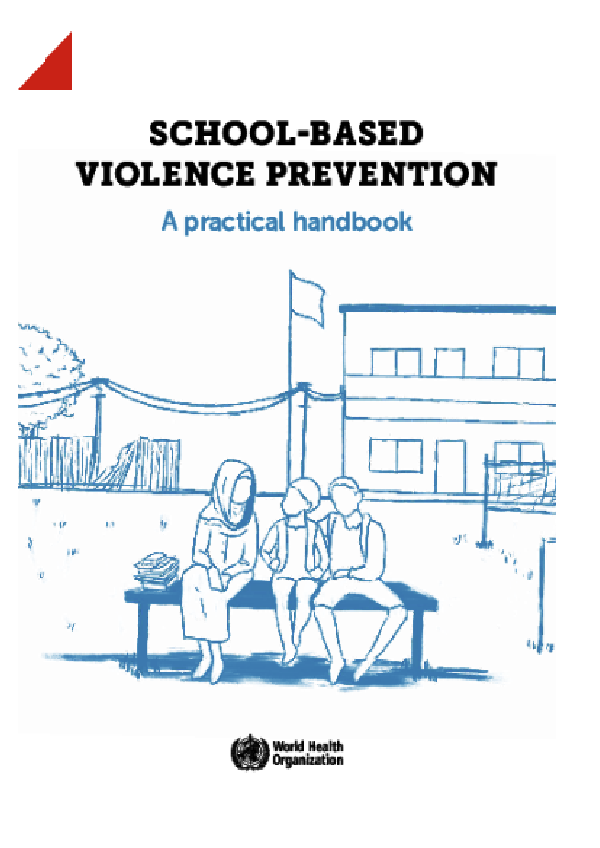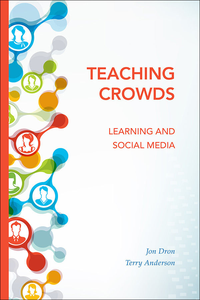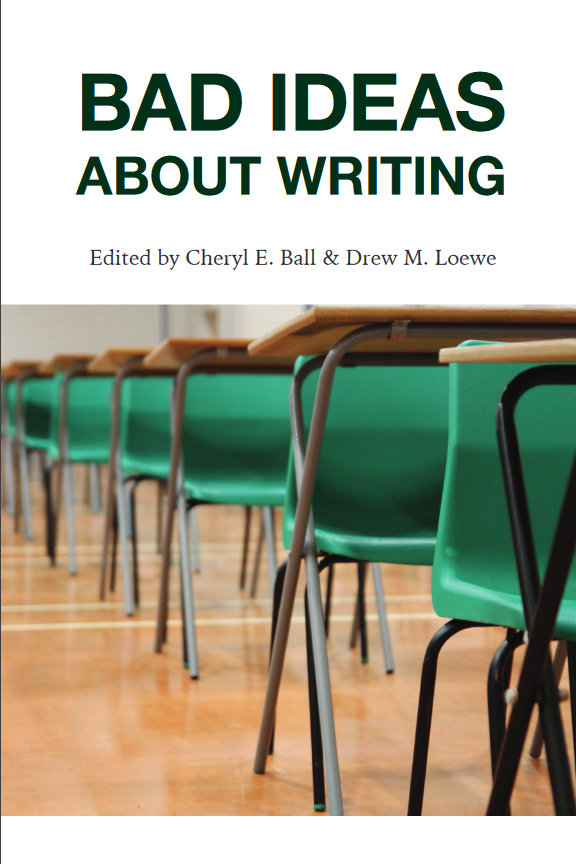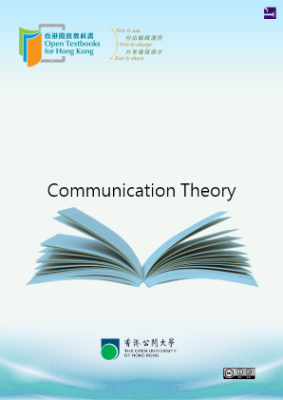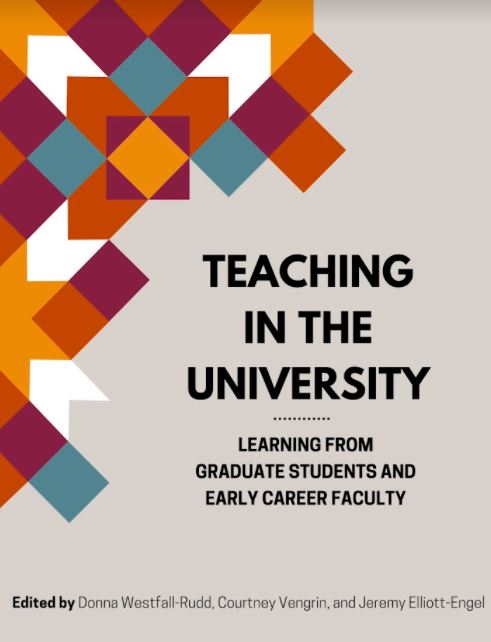This project would not have been possible without the kind and generous support of my communities.
I am very grateful to Alex Dannemiller for his contributions to the content of this book, as well as his support as a peer reviewer. This book also integrates meaningful contributions from Jarrod Dunham, Karolinn Fiscalleti, Paul Lask, and Brian Gazaille. Further thanks to Jessica Lee and Brian Gazaille for serving as peer reviewers, and to Bridget Carrick for copy editing.
I would also like to thank the former students whose work has inspired and will sustain this book. While some have chosen to remain anonymous, the others are cited in the table of contents and the endnotes of sections in which their work appears. These students have not only shaped my pedagogy and worldview, but have (and continue to) inspire the many students who have followed in their paths and continue on to forge their own.
For their mentorship and inspiration, and especially those concepts that have become so integral to my teaching that they are here in this book, I thank Daniel Hershel, Michael Stuart, Susan Kirtley, Leni Zumas, Rachel Brett, Lily Harris, Leah Arvanitis, Mark Davies, Jeffrey Pegram, and Christine Potter.
I would not have been able to create this text without institutional support from Karen Bjork, Sharon Rivers, and Stephanie Doig of the Portland State University (PSU) Library; Laura Wilson and Kale Brewer of PSU’s Office of Academic Innovation; Susan Tardiff, Matt Swetnam, Brendan O’Guinn, and Chris Thomas of the PSU English Department; Susan Kirtley and Hildy Miller, Directors of Rhetoric and Composition at PSU; Paul Collins, PSU English Department Chair; and Lucas Bernhardt and Dan DeWeese of the PSU Writing Center.
And, lastly, I would be remiss to forget Linnea Wilhjelm, who has not simply tolerated my stress and whining throughout the duration of composing this text, but instead met it with patience, love, and encouragement.
First, I’d like to thank you for adopting this book (or at least considering it) for your class. I know the nightmare that textbook adoption can be, and I hope this serves your students’ needs as a primary textbook or a supplementary material.
This text was inspired by my first year as a Graduate Teaching Assistant at Portland State University. I walked into a classroom of first-year students, transfer students, international students, and returning students, all of whom had shelled out $70 for textbooks required by the department. As I planned each lesson, I had this figure in my mind: sure, it wasn’t the most expensive part of college, but my students would feel ripped off if I didn’t use the anthology and instructional handbook that they had been required to purchase.
Both of those books fell quite short. As with any anthology, the selected texts were great, but the scope left a lot to be desired. As with any textbook, the instruction was solid but had different priorities than I had. Nevertheless, I still felt obliged to teach them.
